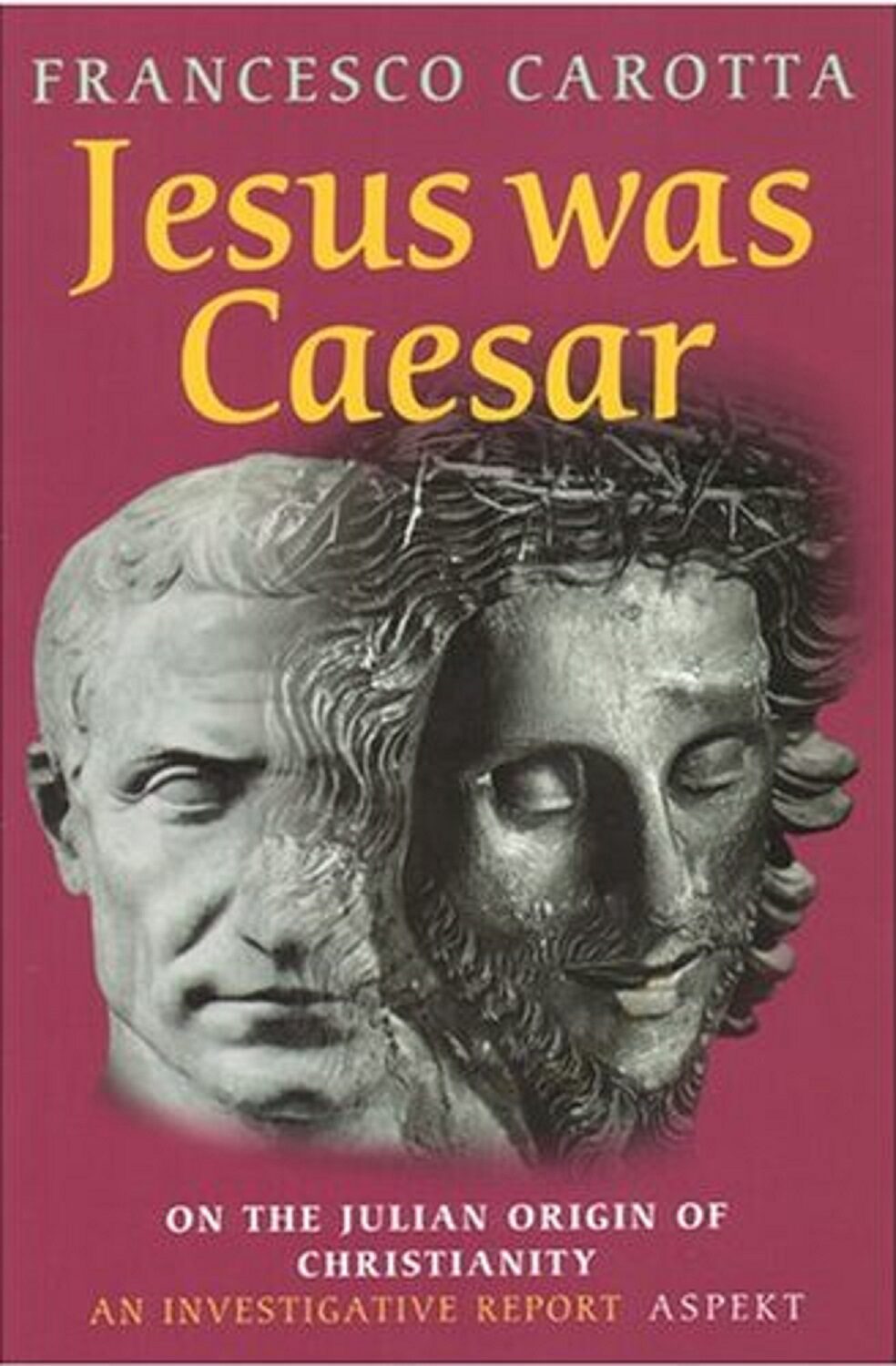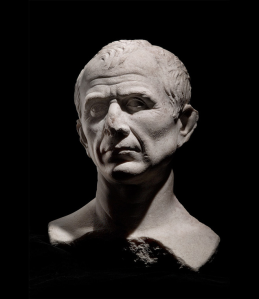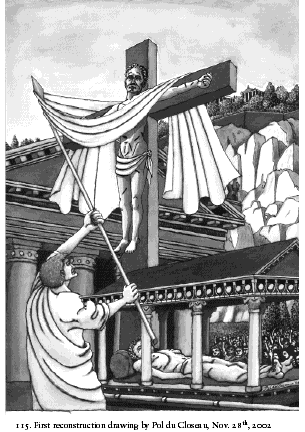Carotta: "Alting i Jesufortællingen kan finde i Cæsars biografi."Den itliensk-tysk linguist og filosof Francesco Carotta beviseer i sin bog Jesus was Caesar, at historien om Jesus Kristus har sin oprindelse i Romerske kilder. Efter mere end femten års undersøgelser har Carotta fundet sporene, som leder til Kristendommens Julianske oprindelse. Han konkluderer, at historien om Jesus er baseret på fortællingen om Julius Cæsars liv.
Carotta: ''Evangliet viser sig at være historien om den romerske borgerkrig, en "fejlfortælling" af Cæsars liv - fra Rubicon til mordet på ham - der er muteret til at blive fortællingen om Jesus fra Jordan til hans korsfæstelse. Jesus er en sand historisk figur, han levede som Gaius Julius Cæsar og genopstod som Divus Julius."Kulten omkring Jesus Kristus, Guds søn og oprindelsen til Kristendommen opstod i det andet århundrede. Tidlige historikere nævnte imidlertid aldrig Jesus, og indtil i dag har der ikke været noget historisk bevis for hans eksistens. Julius Cæsar "søn af Venus" og grundlægger af det romerske imperium blev efter sin voldsomme død ophøjet til status som Imperiegud, Divus Julius. Kulten omkring ham gik i opløsning som Kristendommen opstod.
Kommentar: Delvist oversat af Sott.net fra 'As important as the scientific discoveries of Darwin and Galileo': Linguist Francesco Carotta proves real identity of 'Jesus Christ' to be Julius Caesar
Carotta's new evidence leads to such an overwhelming amount of similarities between the biography of Caesar and the story of Jesus that coincidence can be ruled out.
- Both Caesar and Jesus start their rising careers in neighboring states in the north: Gallia and Galilee.
- Both have to cross a fateful river: the Rubicon and the Jordan. Once across the rivers, they both come across a patron/rival: Pompeius and John the Baptist, and their first followers: Antonius and Curio on the one hand and Peter and Andrew on the other.
- Both are continually on the move, finally arriving at the capital, Rome and Jerusalem, where they at first triumph, yet subsequently undergo their passion.
- Both have good relationships with women and have a special relationship with one particular woman, Caesar with Cleopatra and Jesus with Magdalene.
- Both have encounters at night, Caesar with Nicomedes of Bithynia, Jesus with Nicodemus of Bethany.
- Both have an affinity to ordinary people-and both run afoul of the highest authorities: Caesar with the Senate, Jesus with the Sanhedrin.
- Both are contentious characters, but show praiseworthy clemency as well: the clementia Caesaris and Jesus' Love-thy-enemy.
- Both have a traitor: Brutus and Judas. And an assassin who at first gets away: the other Brutus and Barabbas. And one who washes his hands of it: Lepidus and Pilate.
- Both are accused of making themselves kings: King of the Romans and King of the Jews. Both are dressed in red royal robes and wear a crown on their heads: a laurel wreath and a crown of thorns.
- Both get killed: Caesar is stabbed with daggers, Jesus is crucified, but with a stab wound in his side.
- Jesus as well as Caesar hang on a cross. For a reconstruction of the crucifixion of Caesar, see here.
- Both die on the same respective dates of the year: Caesar on the Ides (15 th) of March, Jesus on the 15 th of Nisan.
- Both are deified posthumously: as Divus Iulius and as Jesus Christ.
- Caesar and Jesus also use the same words, e.g.: Caesar's famous Latin 'Veni, vidi, vici' - I came, I saw, I conquered - is in the Gospel transmitted into: 'I came, washed and saw', whereby Greek enipsa, 'I washed', replaces enikisa, 'I conquered'.
'This report is of the same order of importance as the scientific discoveries of Darwin and Galileo.'
¬ Paul Cliteur, Ph. D., University of Leiden, The Netherlands
'Reading Francesco Carotta's book has fascinated me, ...leading the mind of the reader step by step to the solution of an obscure intrigue. This voyage was like a liberating and exhilarating breath of fresh air.'
¬ Fotis Kavoukopoulos Ph. D., an international expert in linguistics, Athens, Greece
'New connections which have never been seen that way'.Francesco Carotta, Jesus was Caesar. On the Julian Origin of Christianity, available from Amazon.
¬ Erika Simon Ph.D. Germany






Kommentar: Check out our SOTT Talk Radio shows about this topic here and here.